This is how to cool down a bedroom fast, even if you don't have an air conditioner
Struggling to sleep in a hot bedroom with no AC Unit? Here's how to cool down a bedroom fast, according to experts
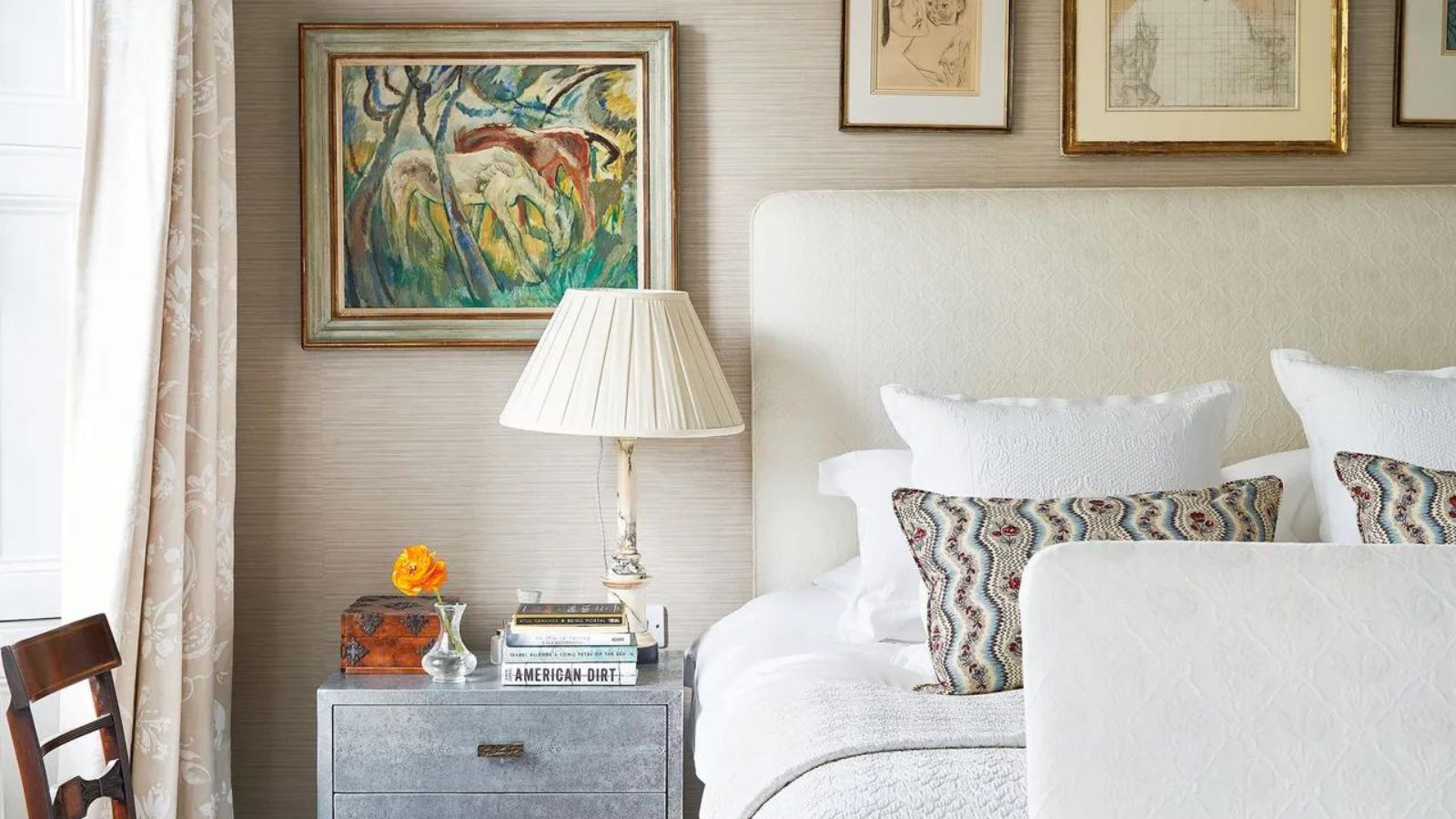

Summer is upon us, and while many of us enjoy basking in the heat and sun outdoors during the day, it’s a very different story trying to sleep at night. An overly warm bedroom can make sleep difficult, sometimes even impossible.
Of course, for those of us with air conditioning, keeping a bedroom cool is easily solved by turning down your thermostat. But what if you don’t have air conditioning, or it has failed for whatever reason? Depending on where your bedroom is located it will heat up before you know it - so, how do you cool it down, and fast, before you get into bed?
We’ve consulted HVAC professionals; here are their top tips for cooling down a bedroom fast. Plus, we’ll explore a few of the common issues around being too hot at night and how to fix them.
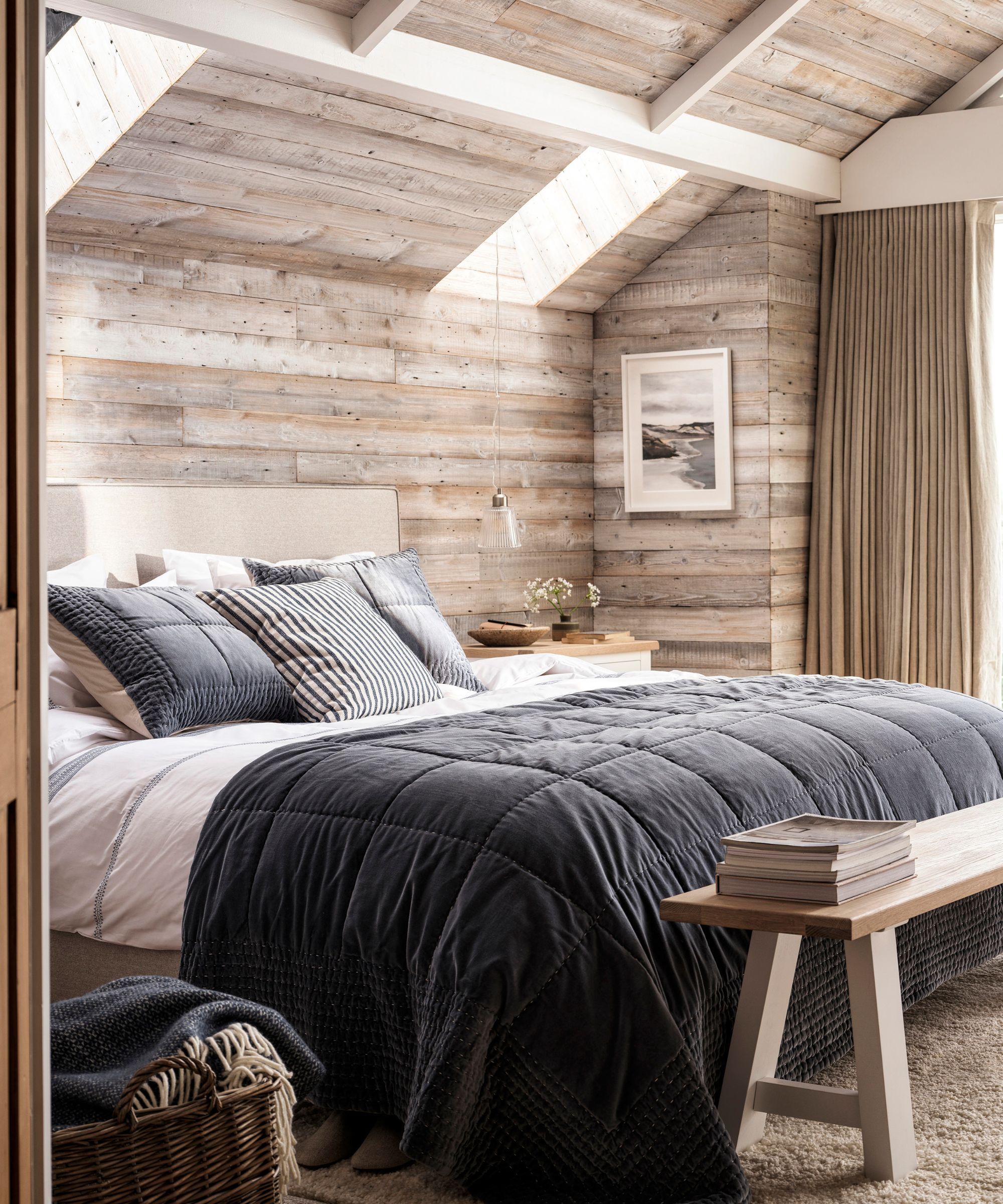
1. Take measures to cool down bedroom during the day
Cooling a room that's a little stuffy takes much less time than one that's boiling. While it’s understandable that you may not always be able to control the temperature in your bedroom - for example, if you’re away from home for a week - there is still a lot you can do to prevent your bedroom from getting too hot in the first place.
If the sun hits your bedroom directly during the day, you need to invest in heavier or blackout shades for your bedroom windows. Guy Caldwell, HVAC Master Instructor at The Refrigeration School, highly recommends installing ‘heavier window shades and closing them during the day when the sun is beating in through the windows.’
When choosing your shades or blinds, look for one made from a material that has thermal insulation/UV protection. Thermal insulation shades (which can be bought on Amazon) are made from a thicker fabric than regular shades and are better at keeping the heat out of your bedroom. If you live in a climate with cold winters, they’ll also be useful for keeping the cold out.
Keeping your blackout blinds down throughout the day is the bare minimum you can do to keep your bedroom cooler at night. The less your bedroom heats up during the day, the less time and effort you’ll need to put in to cool it down at night.
2. Keep your ceiling fan running
If you have a ceiling fan, keep it running, ’Leaving your fan running helps maintain constant air circulation and keeps temperatures consistent throughout your room,' says Caldwell.
Make sure that the ceiling fan is running counterclockwise during the summer months: this creates a breeze by pushing the air around, which in turn helps cool down your bedroom.
Don’t worry too much about the energy costs: even if you left a standard ceiling fan running 24 hours a day, you likely would only pay around 84 cents per week.

Guy Caldwell is an HVAC Master Instructor at The Refrigeration School, Inc. (RSI) in Phoenix, Arizona. Guy has been in the electrical and HVAC/R field for over 18 years, and currently works to train future HVAC/R technicians at RSI.
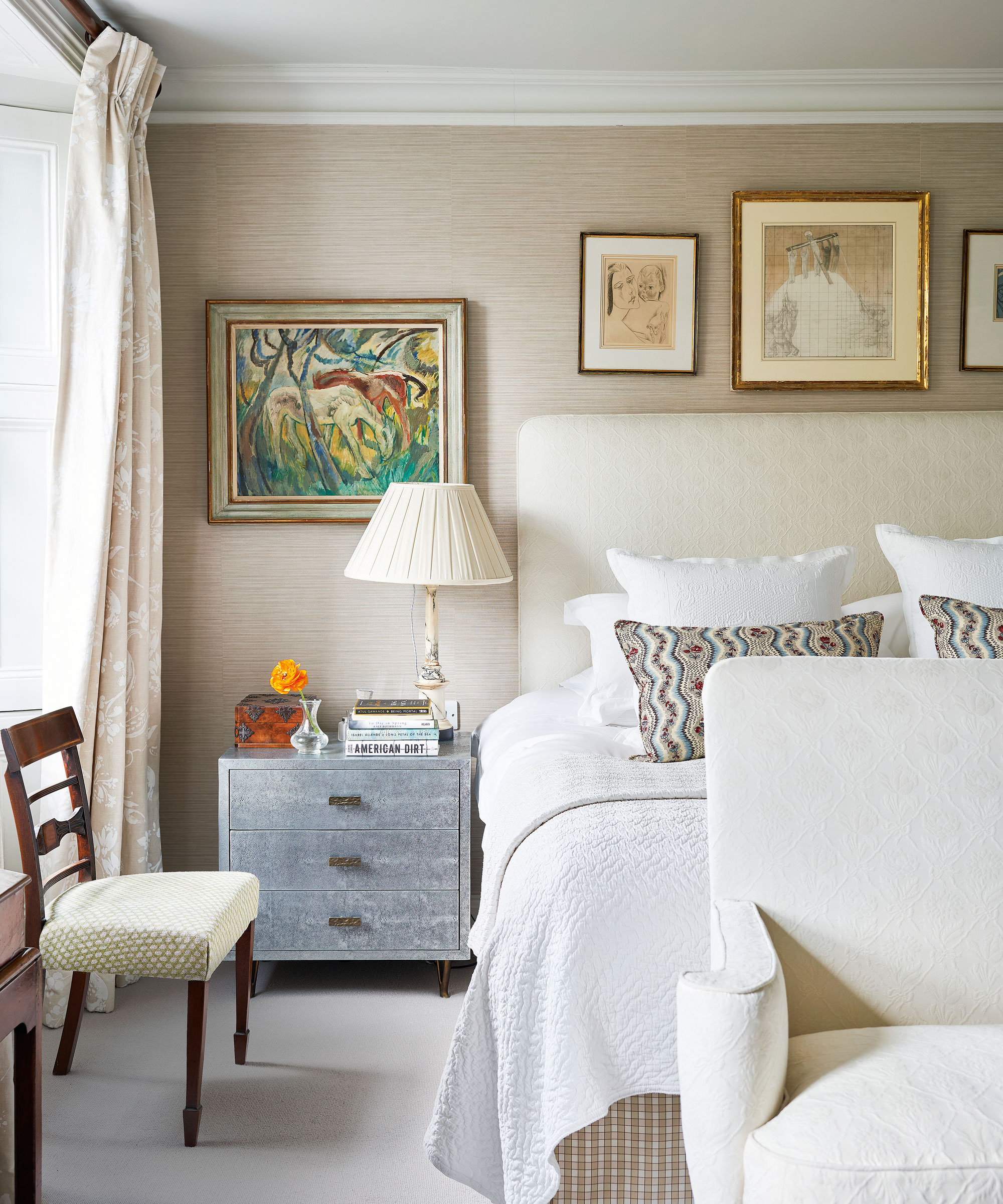
3. Be strategic about when you open windows
The most obvious solution to a hot bedroom is…opening the window, right? Yes, but only if the outside air is cooler than the air inside. Depending on how hot it gets where you live, this may not be the case, so opening the window may sound like a moot point.
Nevertheless, it’s still a good idea to open the window. According to a 2015 study, ventilating the bedroom with outdoor air reduces the amount of carbon monoxide in your blood, improving sleep. The trick is to do this after the heat begins to subside, usually during the second half of the night, in the hours leading up to dawn.
Avoid opening the window during the afternoon and early evening when the heat that's been absorbed by sidewalks and buildings rises into the air, making it stuffy and hot.
4. Invest in a high-CFM oscillating fan
Despite the ongoing ceiling fan vs air conditioners debate, in our opinion, ceiling fans are a staple in any bedroom. However, if you are finding that a ceiling fan alone just isn’t reducing the temperature in your bedroom enough, it’s time to invest in an oscillating fan as well.
If you want to cool down a bedroom fast, you need a model that's more powerful than your average fan. Ronald Raymond, an engineer and owner of HVAC solutions provider RSE Energy Group, recommends seeking out a quiet-rated, high-CFM (Cubic Feet of Air per Minute) fan: ‘The greater the CFM, the greater the airflow, making it more effective at cooling your bedroom. Optimum cooling CFM range would be 1600 to 3000,’ advises Raymond.
If you have a smaller bedroom (under 150 square feet), you may be able to get away with a CFM of 1,000. The Dyson Tower Fan, for example, has a CFU of 1,000 - good for a smaller bedroom, but likely not very effective if used on its own in a larger master bedroom. Fans with lower velocity than 1,000 generally won’t be effective at cooling down your bedroom - keep those smaller, less powerful fans for your home office desk.
If you can’t find a fan that is powerful and quiet enough, just use multiple fans. Asif Bux, Owner & Service Manager at Comfort Union, an HVAC & plumbing company, says that ‘using multiple fans to create cross-ventilation can significantly lower the room temperature by circulating the air more effectively.’

Asif Bux proudly leads Comfort Union, a licensed HVAC, Plumbing and Electrical company in Calgary, Alberta. He is a licensed gasfitter with an eclectic background in Chemical Engineering and Business.
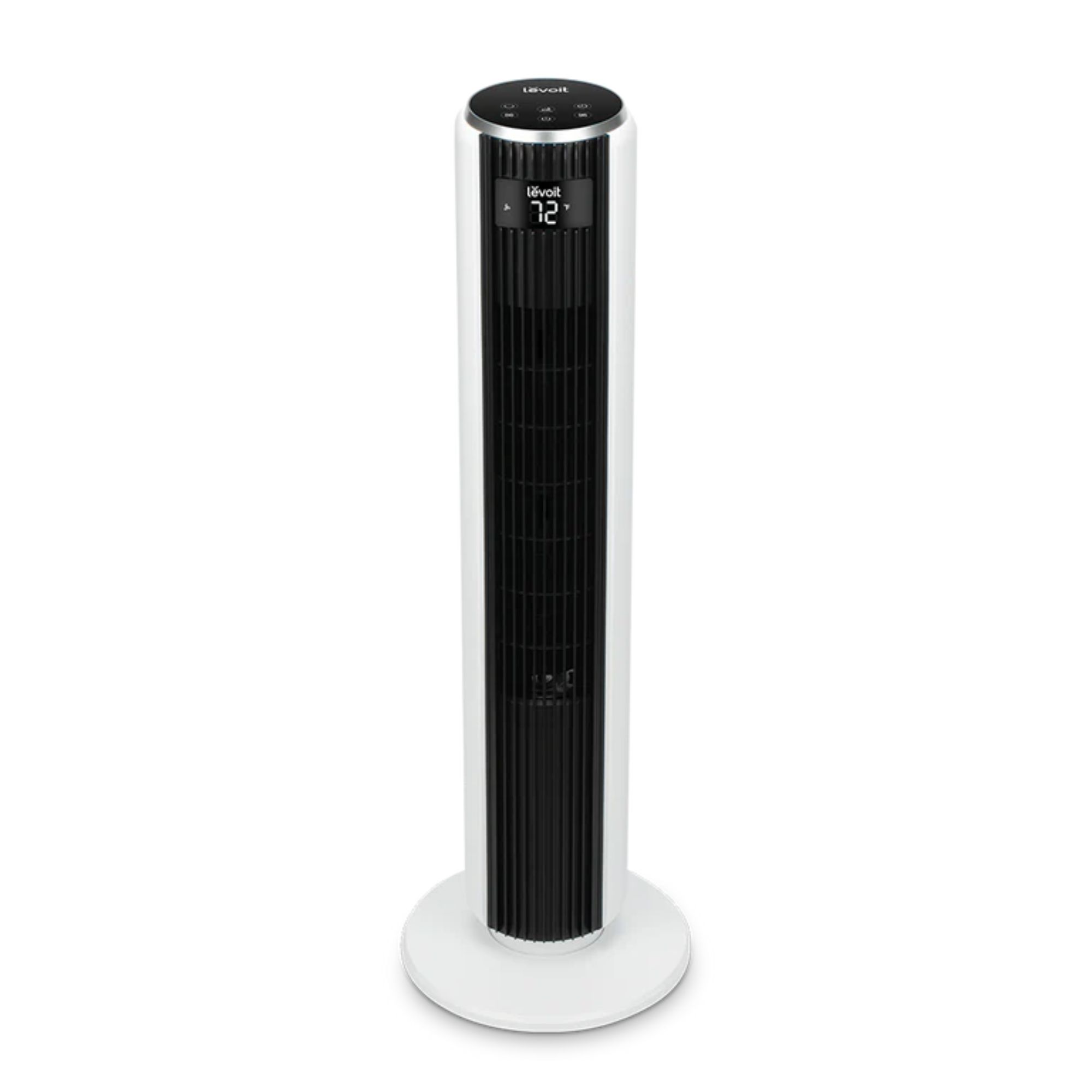
We've reviewed the Levoit Classic Tower Fan and learned that it cools down a room impressively well considering how affordable it is.
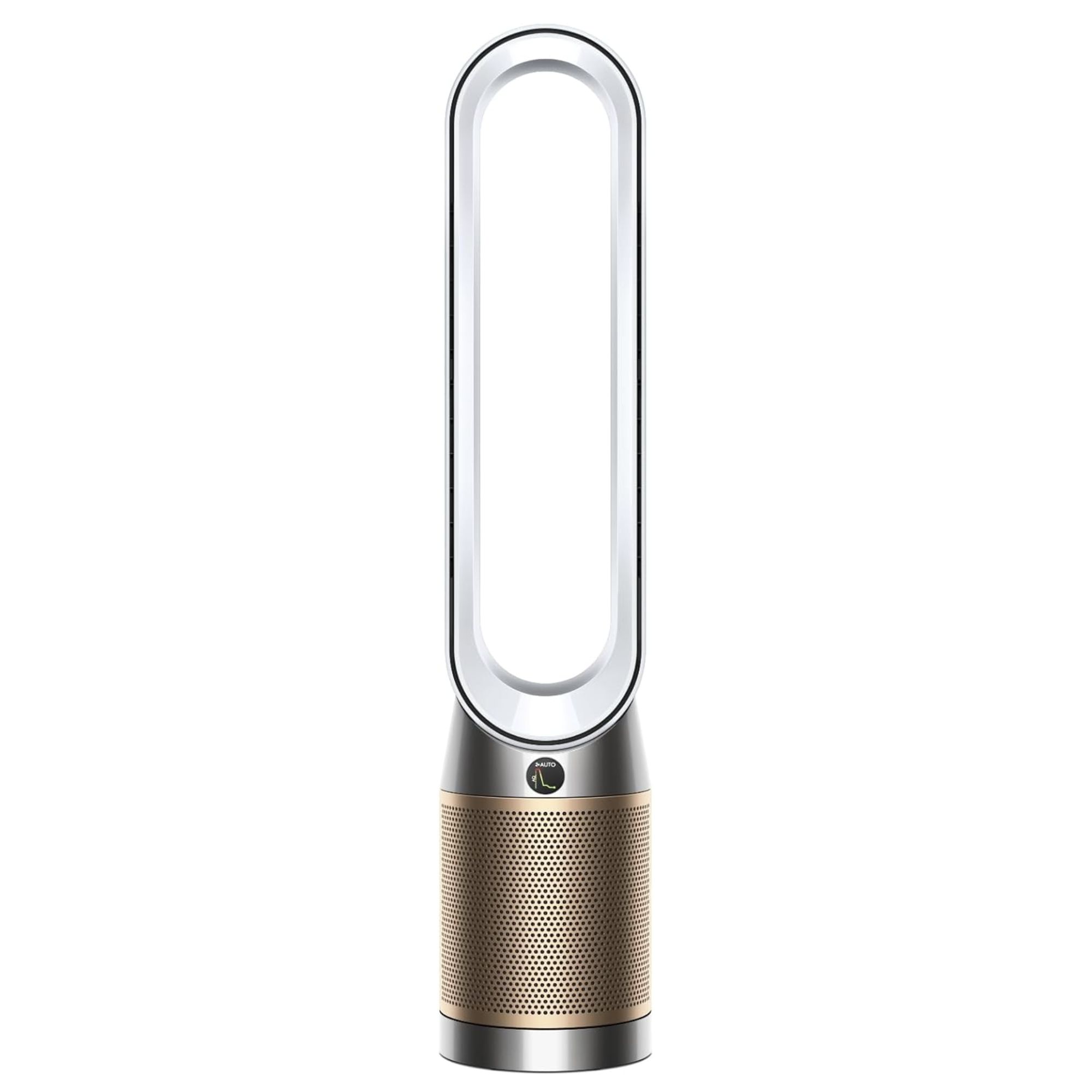
Dyson's fans are a step above most other tower fans you can buy for the home. They purify the air at the same time, removing pollutants and allergens like pollen and smoke from your indoor space.
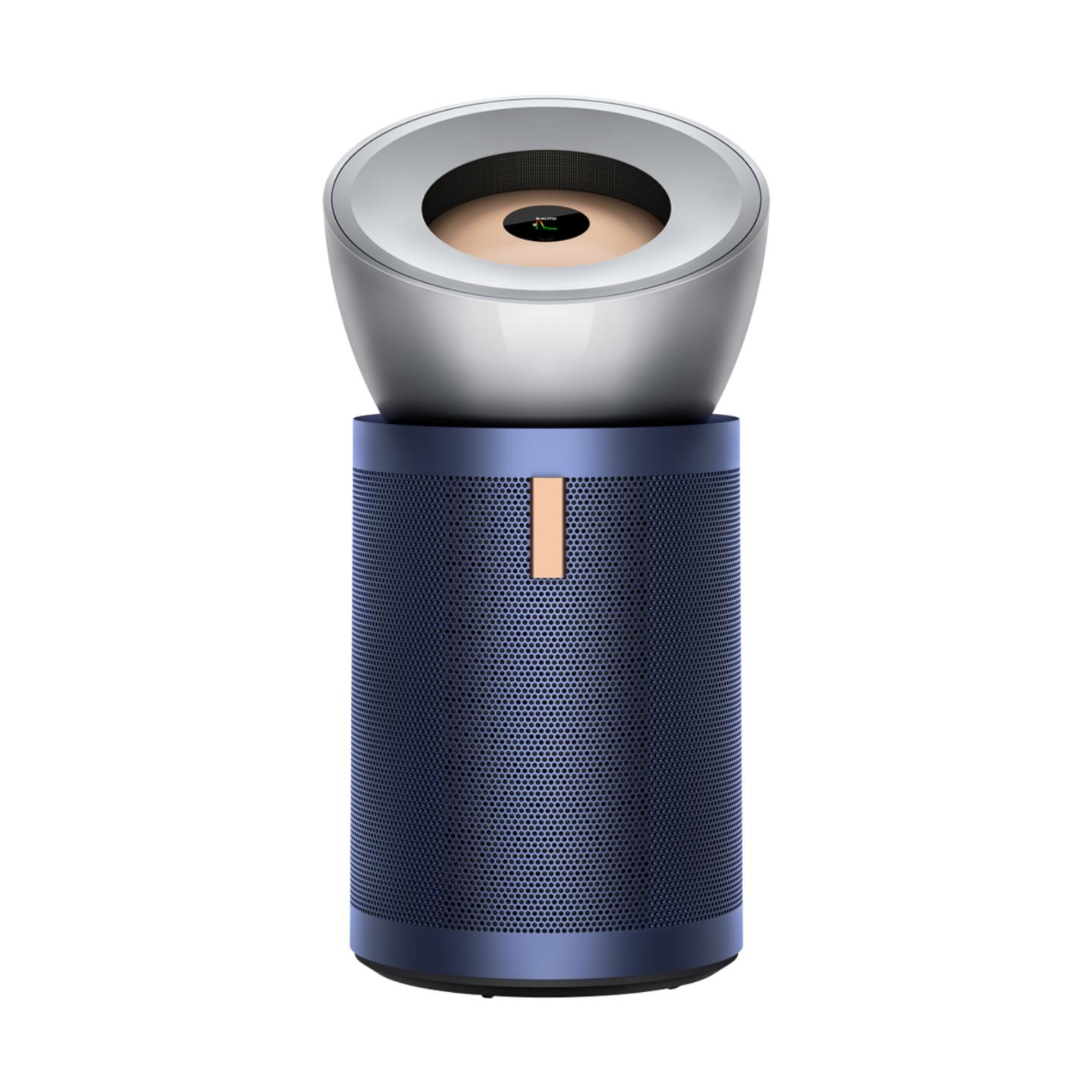
If you're willing to invest in something truly impressive, not many fans will be able to cool down a large space, or even a whole open-plan apartment, like Dyson's Big+Quiet. It can project air over 32 feet, emulate the feeling of refreshing air indoors, and purify your air in the meantime.
5. Pay attention to humidity
Humid air feels hotter: the higher the humidity of the surrounding air, the less easily sweat evaporates from your body, which is how we keep cool when hot. If you live in a humid climate or have high humidity levels in your home, getting a dehumidifier can vastly improve your sleeping environment.
The best dehumidifiers won’t cool the air in your bedroom, but they will help you keep cooler by making the air more comfortable. They work fast too, so you should begin to feel a difference in as little as half an hour.
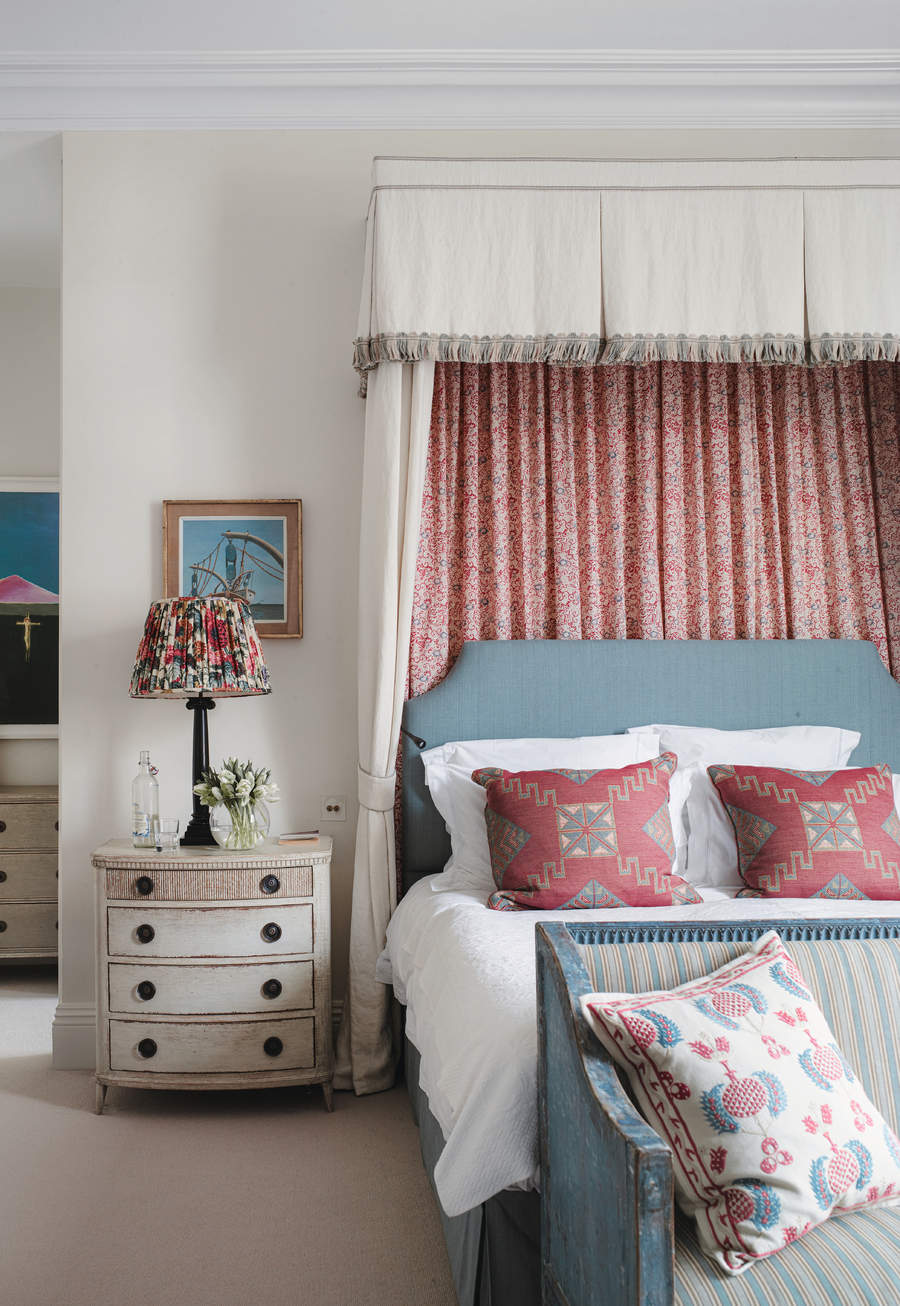
6. Use the power of cold water
We've covered humid air. But air that is too dry is also uncomfortable, especially for your respiratory system, and you may need to add humidity if it is lower than 45% in your bedroom. The fastest way to do this is by placing large bowls of ice-cold water or damp towels in front of your fans.
‘Placing large bowls of water or damp cloths near airflow can help reduce room temperature through evaporation, especially in dry climates,’ says Asif Bux.
7. Invest in a portable air conditioner
A fast and reliable to cool down a very hot bedroom is with a portable air conditioner. It’s a good idea to have one in your home, even if your bedroom is comfortable most of the time. Heatwaves, in particular, can wreak havoc on bedroom temperatures, making otherwise comfortable bedrooms unbearable to sleep in.
Portable air conditioners are not fans; they work in the same way as built-in air conditioners via condenser coils. They’re just not permanently built into your wall or window. You will need to place the hose outside, either through a window or door. Financially, portable air conditioners are more of an investment than fans, although Amazon Basics offers a decent model for under $400.
Aesthetically, having a hose sticking out from your bedroom window isn’t the greatest option, but air conditioning is air conditioning: it works, and it works fast. Only you know if your bedroom heat problem is bad enough to warrant the cost of installing central air conditioning.

8. Rethink your bedding
While a hot bedroom will be uncomfortable no matter what you sleep on, your choice of bedding will make a difference to your overall comfort once you get the bedroom temperature under control.
Try to avoid synthetic materials and feathers/down. These tend to make you hot at night because they’re insulators. The best sheets for sleeping are body temperature regulators, such as wool and silk. As for your bedlinen, stick to natural textiles like cotton, linen, and silk; avoid polyester and polyester-blend sheets.
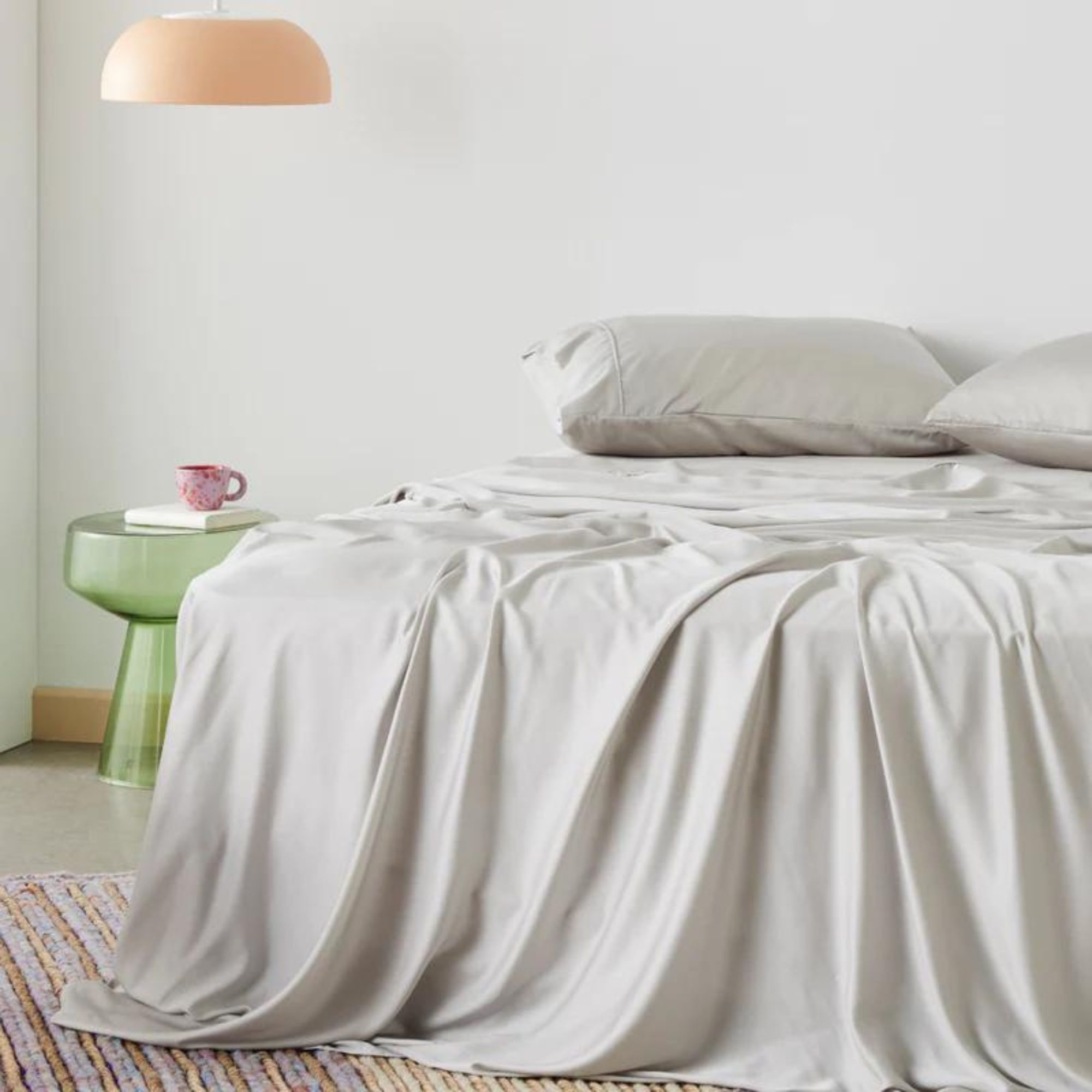
These bamboo sheets help to keep you cool throughout the night. Bamboo is naturally cooling and temperature-regulating, and these sheets are moisture-wicking to ensure a sweat-free, comfortable sleep.
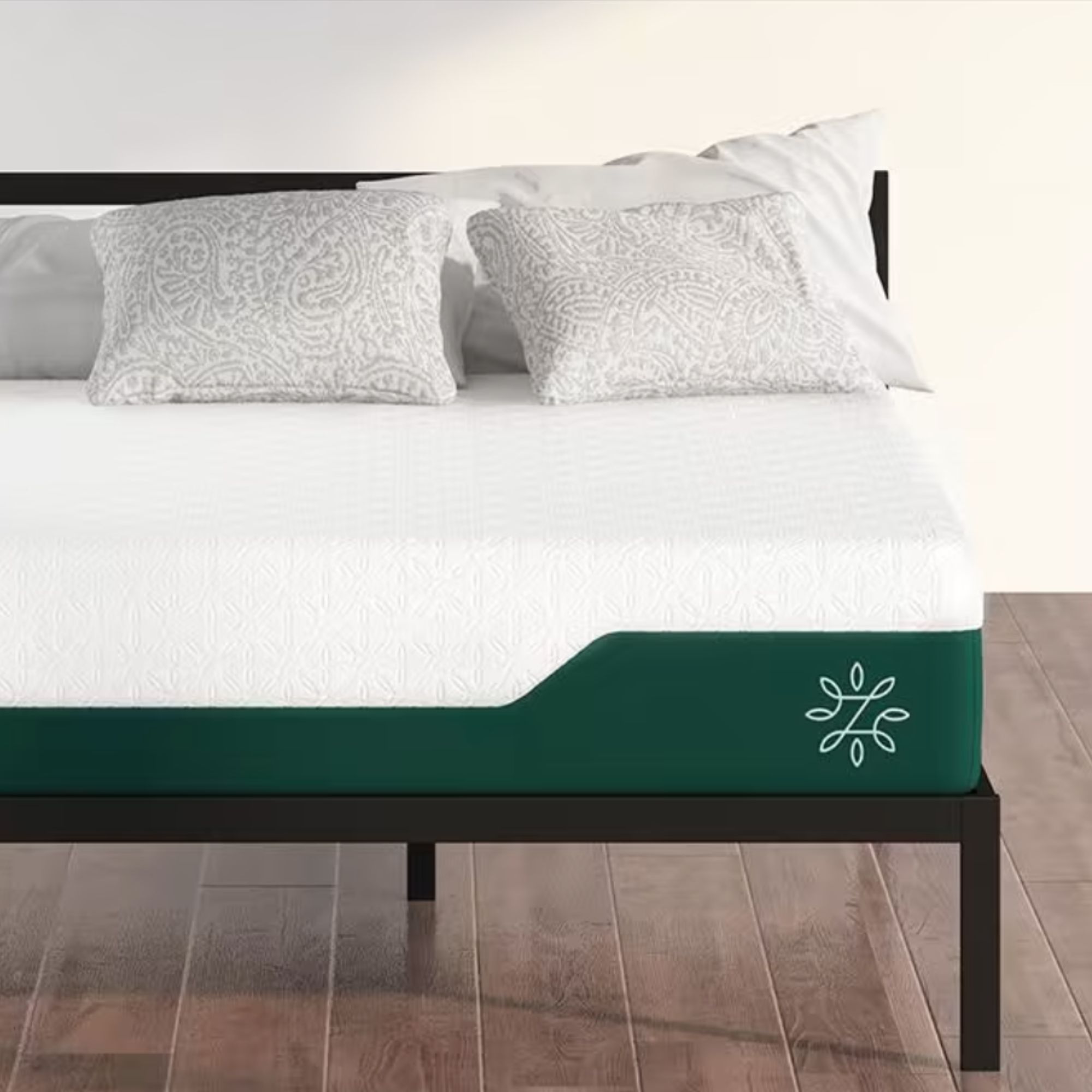
The H&G product testing team found the Zinus cooling gel memory foam mattress to be great for keeping sleepers cool and comfortable all night long. Its innovative gel layer offers support for back pain and regulates temperature.
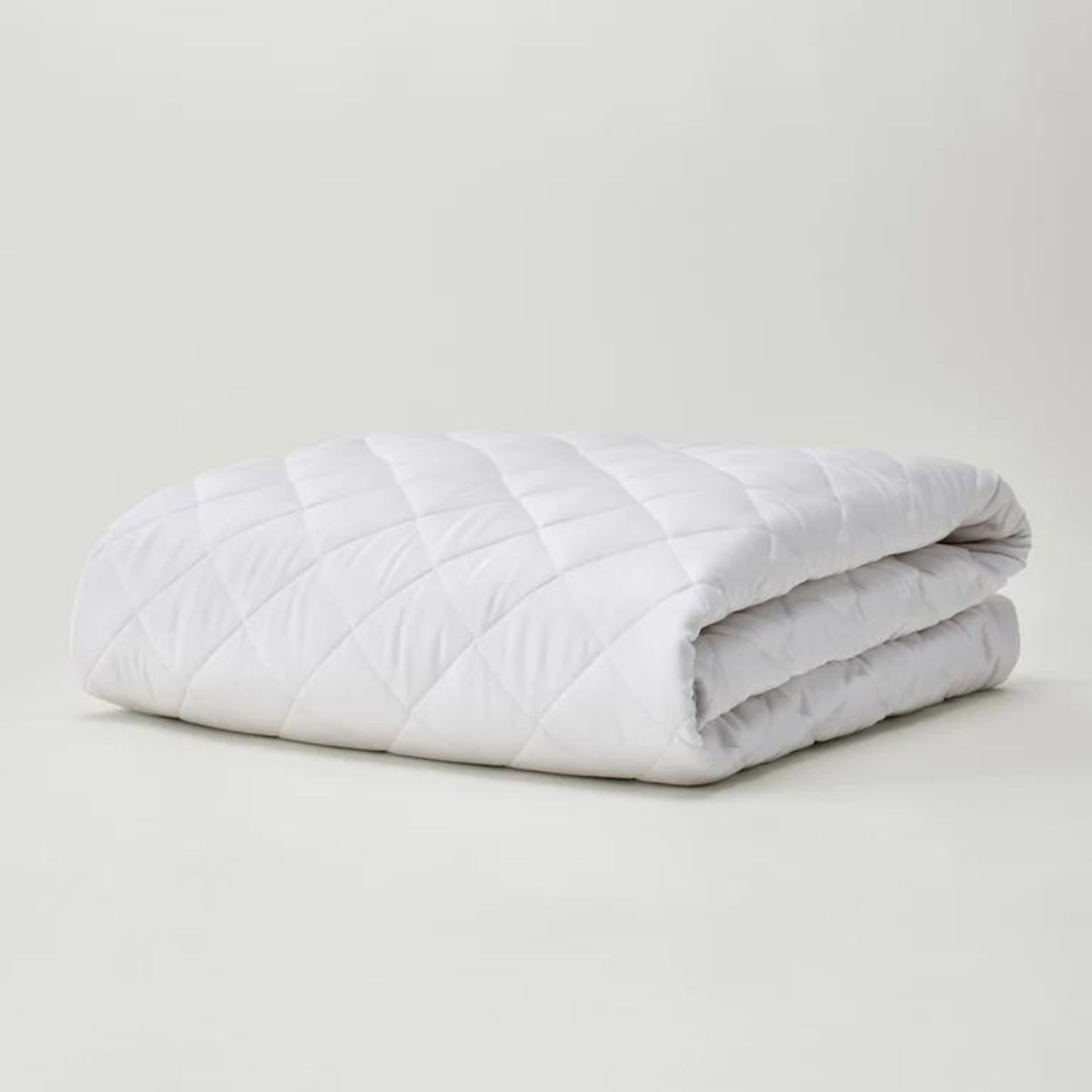
If you're investing in the best cooling mattress, you might as well opt for the best cooling mattress topper, as well! This comfortable mattress pad is made from a sustainable, cold-to-the-touch material that keeps your sleep surface feeling fresh all night long.
What you consider to be the bedroom temperature for sleep may well be too warm or too cold for your partner if you share a bedroom. However, according to The Sleep Foundation, the ideal bedroom temperature for sleeping is 65°F (18.3°C). At any rate, most people find temperatures up to 68F (20C) comfortable. Anything above 68°F likely will affect your sleep quality. Having said that, a bedroom that is cold can also prevent you from sleeping.
Sign up to the Homes & Gardens newsletter
Design expertise in your inbox – from inspiring decorating ideas and beautiful celebrity homes to practical gardening advice and shopping round-ups.

Anna is a professional writer and academic. She taught English Literature for several years before joining Future where she wrote for Real Homes, Homes & Gardens and Livingetc for four years. She is a regular contributor for Parade Home, BiggerPockets, and many other publications. In her spare time, Anna enjoys hiking and gardening.
-
 Bryce Dallas Howard's bedroom is the most creative, social space in her entire home – she uses 'conversational seating' to create a multifunctional 'salon'
Bryce Dallas Howard's bedroom is the most creative, social space in her entire home – she uses 'conversational seating' to create a multifunctional 'salon'The actress's bedroom doubles as a home office thanks to its clever layout and furnishings, proving that this area is much more than a sleep space
By Hannah Ziegler
-
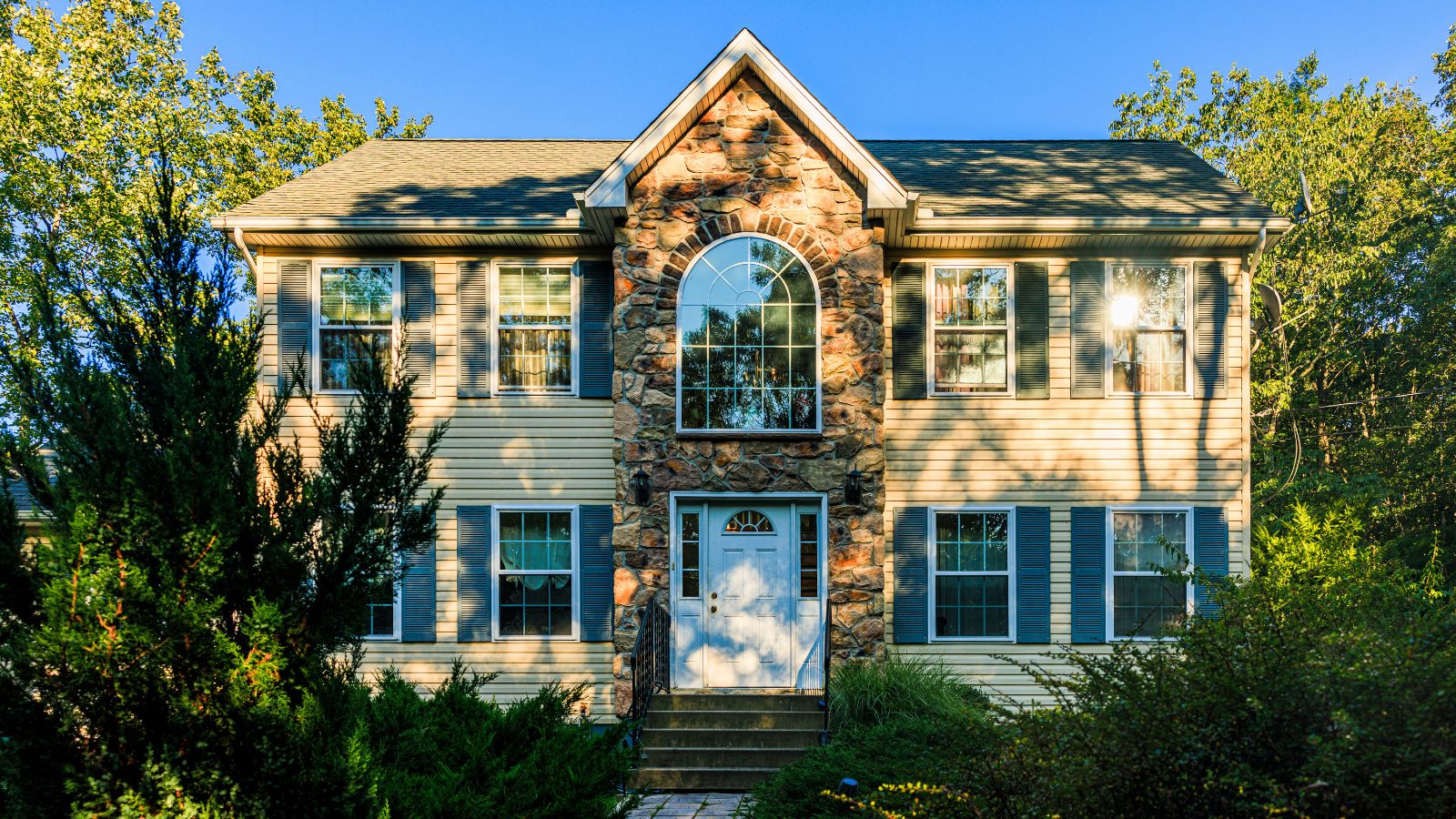 7 questions to ask yourself before moving house – realtors promise answering these questions will prevent buyer's regret
7 questions to ask yourself before moving house – realtors promise answering these questions will prevent buyer's regretDon’t make your move harder, ask these questions before moving to avoid mistakes
By Chiana Dickson